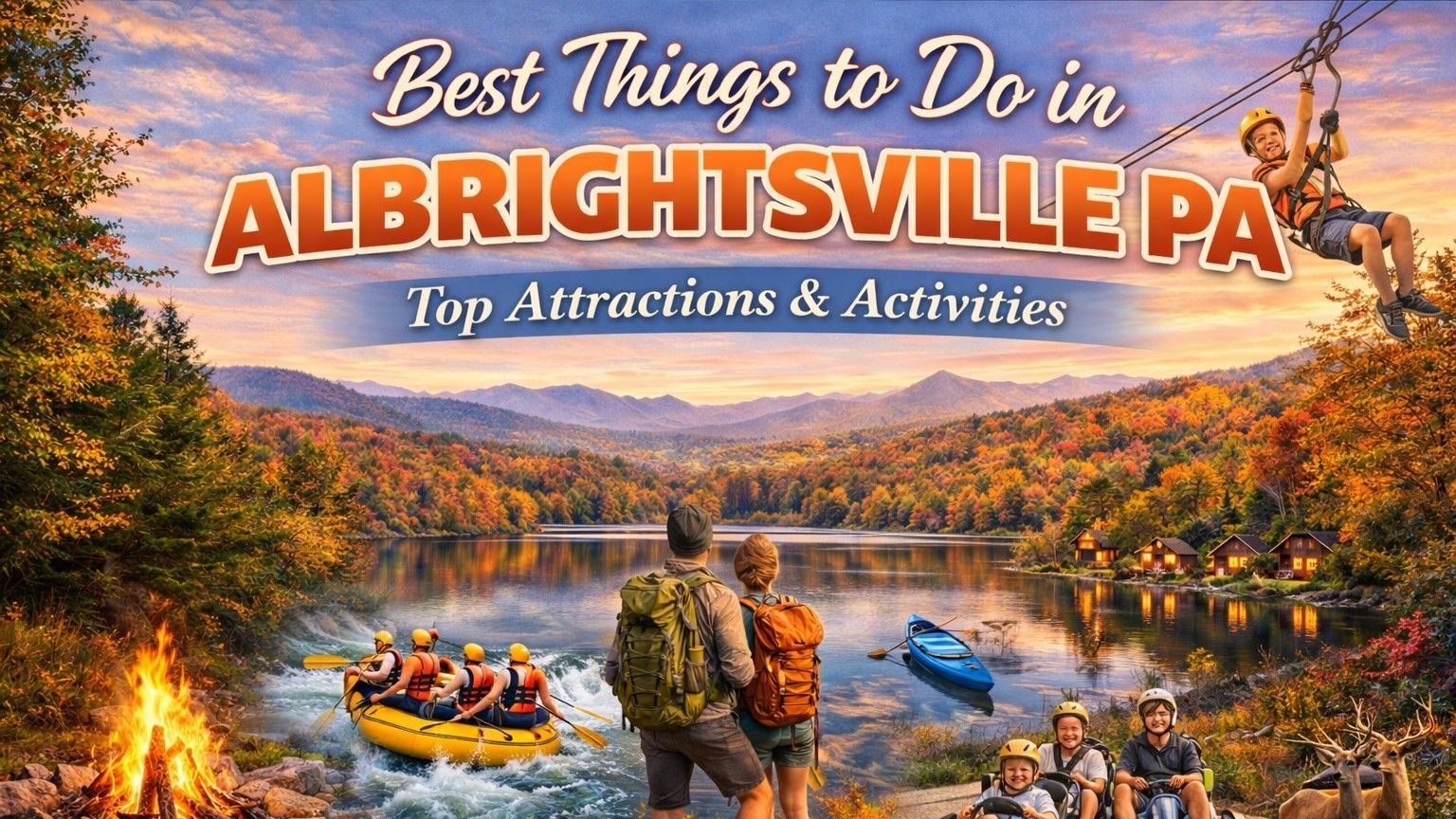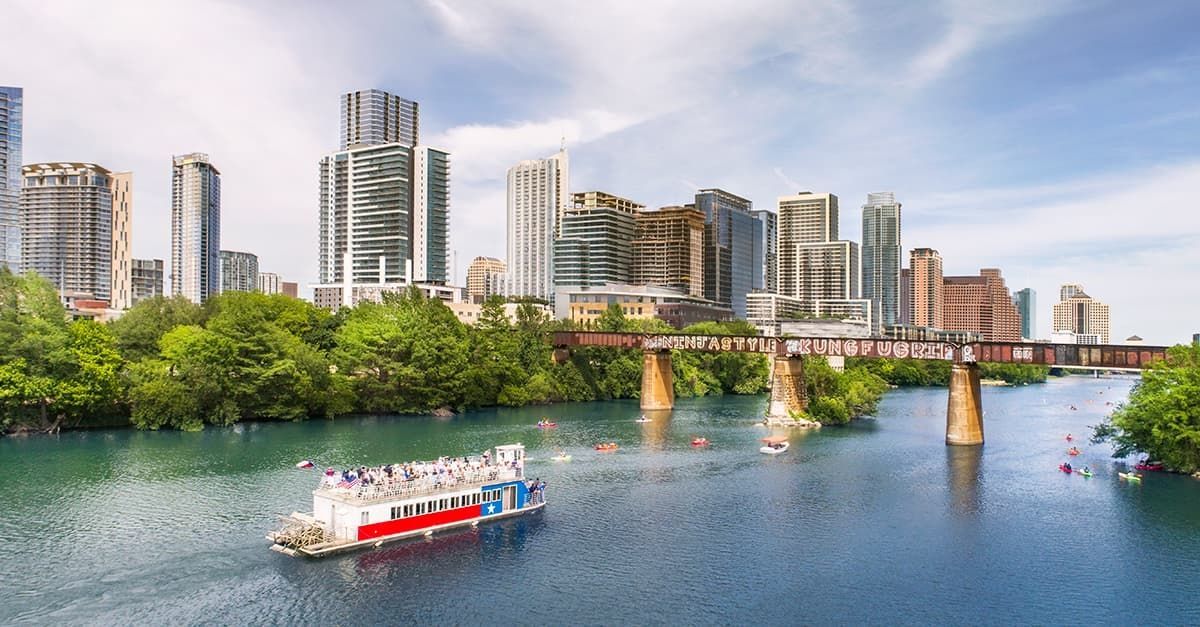Oregon Short-Term Rental Regulations: A Guide to Airbnb Laws in the Beaver State
By: Elliott Caldwell | Created Apr 22, 2025
Disclaimer: This guide is for informational purposes and not legal advice. Short-term rental (STR) laws can change, so always verify the latest regulations with official city and state sources.
Overview of Short-Term Rental Laws in Oregon
Operating a short-term rental in Oregon involves navigating both state-level requirements and local city ordinances. Oregon has no single statewide permit or license for STRs, but hosts must comply with state tax laws and general health and safety regulations. Additionally, most rules governing where and how you can operate an Airbnb or vacation rental are set by cities or counties.
Definition of a Short Term Rental
In Oregon, a short-term rental typically means renting a dwelling for less than 30 consecutive days. This definition applies to any house, apartment, condo, or room rented on a transient basis (often through platforms like Airbnb or VRBO). Stays of 30+ days are usually considered long-term tenancies and are not subject to STR rules.
Common STR Categories
Short-term rentals take several forms in Oregon:
- Entire Home Rentals: An entire house, apartment, or vacation home is rented to guests for short stays. No host resides on-site during the rental.
- Owner-Occupied “Home-shares”: The host’s primary residence is partially rented (e.g. a spare bedroom or basement unit) while the host continues to live on-site. Many cities have different rules for these versus whole-home rentals.
- Accessory Dwelling Units (ADUs) or Separate Units: A secondary unit on a property (like a guest cottage or in-law suite) is rented short-term. Regulations may treat this similar to either an entire home rental or a home-share, depending on whether the host lives on the property.
State Business Registration
While Oregon doesn’t require a special state STR license, hosts engaging in rental as a business may need to register their business. For example, if you form an LLC or use a “DBA” business name for your rental, you should register with the Oregon Secretary of State. Furthermore, cities like Portland also require a basic
business license registration for anyone operating a business in the city (including STR hosts). Always check local business registration and tax requirements.
Health and Safety Compliance
All STR properties must meet basic health and safety standards. Oregon state law requires working smoke alarms in all rental dwellings, and carbon monoxide alarms if the home has gas appliances or an attached garage.
It’s good practice (and often required by local codes) to equip the rental with fire extinguishers, smoke/CO detectors, and clearly marked emergency exits. Hosts should also ensure the unit is clean, sanitary, and meets any applicable building codes or housing standards.
While there isn’t a state inspection for STRs, cities like Portland do require a safety inspection as part of the permit process to confirm the space is habitable and safe.
No Statewide STR Ban or Permit
Importantly, Oregon does not ban short-term rentals statewide. However, hosts must abide by local zoning laws. Some cities allow STRs in residential zones only if it’s your primary residence, for example, while others may cap the number of vacation rentals.
Always confirm local zoning and HOA rules before renting your property.
Short-Term Rental Rules by City
Regulations can differ dramatically from one Oregon city to another. Below is a breakdown of STR laws in three major cities – Portland, Eugene, and Bend – covering permits, zoning, taxes, operational rules, and enforcement.
Portland Short-Term Rental Regulations
Portland is Oregon’s largest city and has a well-defined STR regulatory program in place. Short-term rentals in Portland are legal but heavily regulated through the “Accessory Short-Term Rental” (ASTR) ordinance. The rules are designed to protect housing for long-term residents and ensure hosts operate responsibly.
Permit Requirements
Operating an Airbnb in Portland requires an ASTR permit from the Bureau of Development Services. There are two types:
- Type A Permit: For renting 1 or 2 bedrooms in your home to up to 5 overnight guests. This is for hosts who live on-site (primary residence rentals). Type A permits are the most common and are generally processed administratively with a fee and without a land use hearing.
- Type B Permit (Conditional Use): For renting 3 to 5 bedrooms (up to 10 guests maximum, determined on a case-by-case in review). Type B requires a conditional use land use review, which is more involved – typically only pursued by those who have a large home and want to rent many rooms. As of late 2024, new Type B permits are no longer allowed in commercial or industrial zones (those would be treated as hotels).
To get a permit, hosts must complete an application with the city and meet several conditions:
- Primary Residency:
The STR must be in your primary residence. The host (owner or long-term renter of the unit) must live in the dwelling at least 270 days per year. Renting out an entire home with no primary resident is not allowed in residential zones in Portland. (In other words, pure vacation rentals where the owner lives elsewhere are prohibited in residential areas.)
- Neighborhood Notification: Type A applicants must notify their neighborhood association and all neighbors within 150 feet that they are opening a short-term rental. This written notice provides your contact info and permit details so neighbors are aware. (For Type B, the city itself will mail notices and possibly hold a hearing since it’s conditional use.)
- Proof of Residency and ID: Applicants need to show proof that the address is their full-time home – typically an Oregon driver’s license or ID card with the STR address, plus possibly utility bills or a lease document. The city will verify you meet the 270-day residency requirement.
- Safety Inspection: When first applying, Portland will often schedule an inspection of the premises. The inspector checks for basics like working smoke detectors in each bedroom, proper egress (e.g. adequate window exits in basements), and that the rooms meet building code to be rented. If the home is older, certain upgrades might be needed (such as smoke/CO alarms or seismic strapping of a water heater).
- Business License and Tax Registration:
All Portland STR hosts must register for a City of Portland business license (business tax) account. There is no fee to register if you’re a small operator – Portland only levies its Business License Tax on hosts earning > $50,000/year gross from rentals, and even then it’s a percentage of profits (below that, you file for an exemption). Additionally, hosts should register with the city/county Transient Lodging Tax program if they handle any tax themselves (though Airbnb covers Portland’s lodging taxes automatically).
- Permit Fee and Renewal:
ASTR permits in Portland have an application fee (around $100-$200 for Type A, subject to change). They are typically valid for 2 years. Hosts must renew the permit and maintain a log of guests/records for the city. (As of Oct 2024, Portland no longer requires keeping a physical guest log, but hosts must be able to produce booking records upon request by the city for compliance checks.)
Operational Rules:
Once permitted, Portland STR hosts must abide by various operating rules:
- The host
must be on-site overnight for all but 95 days per year. You can rent rooms while you’re present an unlimited number of nights, and you can even rent out the
entire home while you are on vacation or away, but only for up to 95 nights/year when you’re not there. This allows some flexibility (roughly 3 months) for hosts to do full-home rentals (for example, if you travel for work or leave town in summer), but ensures the home isn’t purely used for short-term guests year-round.
- No more than 2 renters at a time for Type A. Type A permits limit you to
5 guests total, in 2 bedrooms max. You could have one group of 5, or two separate bookings (e.g. two different rooms to two sets of guests) as long as you don’t exceed those limits. Type B allows more guests/rooms but comes with the conditional use process.
- Advertising & License Display: Hosts must include their city permit number in all listings and ads. It is against city code to advertise an STR in Portland without a valid permit number. Also, as of 2024, the city explicitly forbids advertising a capacity higher than your permit allows (for example, you cannot say “sleeps 8” if you have a Type A permit for 5 guests). Violations can incur fines.
- No Exterior Signage: Portland doesn’t allow commercial signage for your Airbnb – it should remain looking like a residence. Also, no more than one rental unit per multifamily building is generally allowed as STR (or 25% of units in a complex, whichever is greater), to prevent whole apartment buildings from converting to Airbnb.
Zoning
In Portland, STRs are allowed in residential zones only if they are accessory to a primary residential use (i.e. host lives there). If you want to do a short-term rental in a property that you don’t live in, it would have to be in a commercial or mixed-use zone and would likely be classified as a hotel or “commercial STR,” which has different permits and is rarely feasible for most homeowners. For most hosts, your property must be residential and your primary dwelling. The City’s zoning code Section 33.207 governs ASTRs.
Enforcement
Portland has stepped up STR enforcement in recent years. They use a city registry and even scrape listings to find unpermitted rentals. If you operate without a permit or break the rules, you could face:
- Fines and Penalties: The city can issue fines (often several hundred dollars per violation). For example, advertising an STR without a permit or overcapacity can result in fines and even permit revocation. Each day of illegal operation is technically a separate violation. Hosts caught with an STR but no permit have been fined and ordered to cease renting until they comply.
- Permit Revocation: Serious or repeated violations may lead to your permit being revoked. Notably, if your permit is revoked, the city now prohibits issuing a new STR permit at that address for
two years, which is a strong deterrent.
- Data Audits: Portland’s ordinance allows the city to request booking transaction data from platforms to verify that hosts are following the 270-day residency rule. If a host is suspected of not actually living at the home, the city can investigate and demand evidence. Failing to provide data when asked (within 30 days) is a violation in itself.
- Neighbor Complaints: If neighbors complain about noise, trash, or other issues, code enforcement may get involved. Hosts are expected to provide neighbors with contact info and respond to issues. A history of complaints could jeopardize your permit during renewal.
Resources
Portland provides thorough info online, including the [Accessory Short-Term Rental Permit application guide (Portland.gov)】 and a FAQ on taxes and business licenses. Prospective hosts in Portland should review the city’s guidelines carefully to ensure they qualify and can meet ongoing requirements.
Eugene Short-Term Rental Regulations
Eugene (Oregon’s second-largest city) has a lighter regulatory touch on STRs compared to Portland. Short-term rentals are allowed in Eugene, and in late 2020 the city adopted a simple registration requirement instead of a full permitting system. The focus in Eugene is on collecting taxes and having a local contact on file for each rental.
Registration
If you operate an STR within Eugene city limits, you must register the property with the city’s Code Compliance office. Registration is free and done online or via a form. You will need to provide:
- Owner/Operator name and contact information
- STR property address (must be within city limits)
- Whether the rental is owner-occupied (do you live on-site or is it non-owner occupied)
- A local contact person (someone available 24/7 to address issues, who can be the owner or an agent).
Once registered, the city issues a Certificate of Authority for Transient Room Tax collection. This certificate must be posted at the rental property. Note: If your property is just outside Eugene city limits (unincorporated county), the city’s STR rules and registration do not apply.
No Special Permit/Zoning Restrictions
Eugene does not cap the number of STRs, nor require you to occupy the home, nor have a strict zoning exclusion. In effect, a homeowner can rent out an entire house or a room on a short-term basis in any residential zone in Eugene as long as they register and pay taxes. There is also currently no limit on the number of nights you can rent (some cities restrict renting a unit year-round, but Eugene does not impose a yearly cap). The city council considered stricter rules in 2020 (such as occupancy limits and annual night limits), but ultimately only implemented the registration and tax compliance requirement.
Operational Requirements:
Eugene’s ordinance is relatively minimal on operational rules:
- You are expected to follow general nuisance laws (noise, garbage, etc.) and “be considerate of neighbors,” but there are no additional city-imposed quiet hours or parking rules specific to STRs beyond what applies to any residence.
- The city
does prohibit renting temporary structures: It is
illegal to rent out a vehicle, camper, or tiny house on wheels as a short-term rental in Eugene. (You are allowed to let someone camp on your property in an RV or tent
for free, but you cannot charge for it.)
- Eugene did not explicitly write an occupancy limit into the code for STRs. A common guideline is no more than 2 persons per bedroom, but this is not actively enforced by the city. Still, as a best practice, keep occupancy reasonable for the size of the home and comply with fire safety (e.g. don’t overcrowd bedrooms).
Taxes
All Eugene STRs must pay the 4.5% city Transient Room Tax (TRT) on gross rent, in addition to the 1.5% state tax. Hosts need to register with the city’s Finance department for tax remittance (this is a separate registration from the STR registration—essentially getting a tax account). The city provides a form to report and pay TRT, and once registered you’ll receive the certificate to display. Airbnb has an agreement with Eugene to collect the 4.5% city tax for bookings on the platform, which has simplified compliance for many hosts. If all your bookings are on Airbnb, Airbnb will handle the city and state tax remittance. However, if you take direct bookings or use other services, you must collect and send the 4.5% to the city yourself.
Enforcement
Eugene relies on a complaint-based system and the honor system for compliance:
- If a host fails to register their STR, they are technically in violation of city code (Eugene Code 3.350). Code Compliance officers could issue a citation or civil penalty, though in practice the city has focused on education and getting hosts to voluntarily register.
- The city has a hotline/email for STR complaints (neighbors can contact Code Compliance with issues). If noise, trash, or other issues become a problem, the city can investigate and order the owner to address the problem or potentially revoke the STR registration.
- Because there is no formal permit to lose, enforcement might mean fines or, for egregious problems, deeming the use a nuisance and ordering it stopped. Major violations (like running an STR in an unsafe structure or in a prohibited manner) could fall under general code enforcement penalties.
- One enforcement tool Eugene has is the tax certificate: operating without obtaining the tax certificate (and thus not paying TRT) is unlawful. The city can audit or cross-check Airbnb’s tax remittance records to identify unregistered rentals.
Resources
Eugene’s official website provides a Short-Term Rentals FAQ and summary of rules, as well as contact info for the STR program. Hosts should review the city’s STR info page and ensure they submit the one-time registration. Beyond that, maintaining good neighbor relations is key since Eugene’s system is less formal but still expects you to be a responsible host.
Bend Short-Term Rental Regulations
Bend, a popular outdoor tourist destination in Central Oregon, has more complex STR regulations aimed at balancing the booming vacation rental market with neighborhood character. Bend requires permits, licenses, and adheres to strict density limits for short-term rentals.
Two-Permit System (Land Use & Operating License):
Bend uses a two-tier approval process:
Land Use Permit:
This is essentially a zoning permit that attaches to the property. You must obtain a land use permit from the Planning Division to use a dwelling as a short-term rental. Bend’s code creates
Type I and Type II STR permits for different scenarios (plus distinctions for commercial zones):
- Type I STR (Administrative): Covers
owner-occupied STRs and
infrequent-use rentals. If you as the owner will live on-site and only rent out rooms (up to 2 bedrooms), or if you will rent the
entire home only on a very limited basis (no more than 30 days per year), you fall under Type I. Type I applications are cheaper and do not have neighborhood density restrictions. They’re processed by staff administratively.
- Type II STR (Conditional Use in Residential Zones): Required for
whole-house rentals used more than 30 days per year in residential zones. If you plan to rent your entire house as a vacation rental regularly (essentially a non-owner occupied STR in a residential area), you must go through the Type II permit process, which involves a higher fee and compliance with a
density cap (explained below). Type II permits may involve notifying neighbors and could be denied if your area has too many STRs. (There is also a provision for whole-house STRs in commercial or mixed-use zones: those are treated like Type I in Bend, not subject to density limits, since in commercial areas the city is less concerned about STR concentration.)
- The land use permit is a one-time (transferable) approval tied to the property. Application fees as of 2024 were about $882 for a Type I and $2,454 for a Type II, plus a 4% surcharge. The big price difference reflects the additional review and scarcity of Type II permits.
- Short-Term Rental Operating License: In addition to the land use permit, Bend requires an annual STR Operating License (like a business license specific to STRs). Every STR must have an operating license – this is what you renew each year. The initial license costs about $350, with an annual renewal of $255. To get the license, you must show you have an approved land use permit for the property, and you must agree to the city’s operating rules (including acknowledging the Good Neighbor Guidelines, providing a local contact, etc.).
Density & Spacing (the 500-Foot Rule):
Bend’s most significant STR rule is the density limit in residential zones. To prevent neighborhoods from having too many vacation rentals, Bend ordinance imposes a 500-ft buffer between STR properties:
- If you are applying for a Type II (whole-house) STR permit in a residential zone, the city will not approve it if another STR is located within 500 feet of your property line. This effectively creates a spacing requirement so that no two non-owner STRs are too close.
- The city provides maps of existing STR permits, and this rule has made new STR permits in some popular Bend neighborhoods very hard to get (if your area is “saturated,” you may be denied simply due to proximity).
- Notably, Type I (owner-occupied or infrequent) STRs are exempt from the 500-ft rule. The logic is that an owner-occupied STR has less neighborhood impact (and infrequent rentals are by definition rare). Also, STRs in commercial or mixed-use zones are exempt from spacing limits.
- Bend also limits STRs on a single property: if you have a house with an accessory dwelling, only one of the units can be used as an STR if you’re doing whole-home rental. You couldn’t rent both the main house and the ADU short-term (unless one is owner-occupied, perhaps).
Operational Requirements
Bend’s operating license comes with several rules and conditions:
- Proof of Use:
Bend wants to prevent permits from sitting idle (to curb speculation). You must actually rent the property at least once every 12 months to keep your STR license active. Each year upon renewal, Type II owners must submit proof of rental activity (e.g. booking receipts) as part of the renewal. If you fail to rent it at all in a year, the city can void your permit for non-use. (If you have a long-term tenant for part of the year, they have an exemption process, but generally they don’t want “just in case” STR permits.)
- Good Neighbor Guidelines: Bend emphasizes neighbor relations. The city has Good Neighbor Guidelines that must be provided to guests and posted in the rental. These guidelines cover respecting noise limits (quiet hours after 10 p.m.), managing trash, parking only in designated areas, etc.. While these are “guidelines,” failure to follow them can lead to complaints and jeopardize your license. Essentially, guests should behave as neighbors – no loud parties, keep the property tidy, and park considerately.
- Local Contact: All Bend STR operators must designate a local contact (who could be the owner or a manager) who can respond to issues 24/7. If a neighbor or the city needs to reach someone about the rental (for a noise complaint, emergency, etc.), this contact should be available at any time.
- Occupancy & Parking: Bend’s code does not set a hard number on occupants, but the city will require you to declare how many bedrooms and guests your rental accommodates and ensure parking is adequate. Generally, you must provide on-site parking (e.g. driveway or garage) for your guests, typically one space per bedroom used – this is checked during permit application. Occupancy should align with the number of bedrooms (e.g. two per bedroom is a common standard).
- Signs and Advertising: Similar to Portland, Bend requires that you include your STR license number in any advertisement. Exterior signs identifying the property as a rental are not allowed in residential zones.
Taxes
Bend’s STRs are subject to the 10.4% city lodging tax on rents, plus the 1.5% state tax. Bend is part of Airbnb’s tax collection program – Airbnb collects the 10.4% for bookings within Bend city limits. However, Bend hosts still must file quarterly city tax returns even if Airbnb paid the money.
On the return, you’ll list your rental income and then note the portion already paid by Airbnb as an “intermediary” exemption. This ensures the city has a record of your earnings (and it double-checks Airbnb’s payments). Failure to file returns can result in penalties or even issues with your license renewal. If you do any direct rentals, you must collect the 10.4% and pay it via the city’s online portal. Bend’s tax is due monthly or quarterly depending on volume (most small hosts can file quarterly).
Enforcement:
Bend actively enforces its STR rules:
- Application Scrutiny: The 500-ft rule and other criteria are strictly applied during permit review – applications can be denied. There is an appeal process if you believe a denial was in error.
- License Revocation: If a STR owner violates conditions (for example, complaints of repeated loud parties, or not complying with occupancy/parking requirements), the city can revoke the operating license. Operating without a license or permit is subject to code enforcement fines.
- Fines: Bend can levy fines for rental code violations or for failing to remit taxes. These fines can be significant (hundreds per day for ongoing non-compliance). Additionally, advertising an STR without listing a license number could draw a citation.
- Complaints: The city provides a public portal for neighbors to report issues with STRs. If complaints are verified, the owner will be notified and expected to resolve the issue. Multiple valid complaints could trigger a license review. Bend’s authorities have occasionally undertaken sweeps to find illegal STRs (those operating without permits) by scanning online listings.
Resourcess
The City of Bend offers a Short-Term Rental Program page with guides and a map of approved STRs. Key documents include the Bend Code Chapter 7.16 – Short-Term Rental Operating License requirements and the Type I/II STR Permit Application Guide (updated 2024). Given Bend’s stringent rules, prospective hosts should carefully read these and possibly consult with the city’s Planning staff to understand the feasibility of getting a new STR permit in their desired location.
Starting a Short-Term Rental in Oregon: Step-by-Step Guide
If you’re looking to become an Airbnb host or start a vacation rental business in Oregon, here is a general step-by-step roadmap:
1. Research Local STR Laws
Start by checking the short-term rental regulations for your specific city or county. Determine if STRs are allowed at your property and what permits are required. Contact the local planning or code office or visit the city’s website for STR rules. For example, find out if your city requires owner-occupancy (like Portland) or has a permit cap (like Bend). This will shape your business plan.
2. Verify Zoning and Property Eligibility
Ensure your property’s zoning and type qualify for a short-term rental. If it’s in a residential zone, verify that non-owner occupied STRs are permitted (some places prohibit a second home from being a vacation rental in residential areas). If your property is part of a condominium or HOA, also check those rules – some HOAs ban or limit short-term rentals regardless of city law.
3. Register or Form Your Business
Treat your STR as a business. Register for any required tax accounts or licenses. In Portland, you’ll register for a city business license tax account. In all of Oregon, if you will collect lodging taxes yourself, register with the Oregon DOR for a state lodging tax account (you can do this online via Revenue Online) to file your quarterly tax returns.
If you plan to operate under an LLC or a business name, file that with the state. This step helps legitimize your operation and ensures you can pay taxes properly.
4. Obtain Local Permits/Registration
Apply for the necessary short-term rental permit or register your rental as required by the local jurisdiction. This is a critical step:
- If you’re in
Portland, submit a Type A ASTR permit application (with proof of residence, neighbor notice, etc.) to the City’s permitting office. Wait for approval before listing your space.
- In
Eugene, complete the simple STR registration form online with the city. There’s no fee, but it’s mandatory to register before operating.
- For
Bend, be prepared to apply for a land use STR permit (Type I or II) from the Planning Division
and then an STR operating license from the city. Given the complexity, consider reaching out to the city for a pre-application meeting.
- Other cities will have their own process (some require a one-time permit, others an annual license). Fill out all forms completely and pay any application fees.
Do not start renting until you have the city’s approval in places that require a permit.
5. Prepare the Property for Guests and Inspection
While your permit is processing, get your property guest-ready and up to code:
- Install
smoke detectors in every bedroom and hallway, plus carbon monoxide detectors on each floor (as required by law).
- Ensure windows and doors used for emergency exits open properly. Install fire extinguishers in kitchen and near sleeping areas.
- Tidy up the space, remove obvious hazards, and consider childproofing if you’ll allow children.
- Set up the required
posting materials: Many cities require you to post your permit certificate, emergency contact info, and certain notices (like Oregon’s Good Neighbor Guidelines or occupancy limits) inside the rental. Prepare a binder or info sheet for guests.
- If an inspection is required (common in Portland for initial permit, and in some other cities), schedule that and address any items the inspector notes.
6. Obtain Insurance Coverage
Standard homeowner’s insurance typically
does not cover commercial STR activity, so secure appropriate insurance. Airbnb provides some host liability coverage, but it’s wise to have your own STR insurance or rider that covers property damage and liability caused by paying guests. This protects you and your property in case of accidents, and some cities (like several outside Oregon) actually mandate proof of insurance.
7. Market and List Your Rental (Legally)
Once you have your permits and the space is ready, you can list your property on Airbnb or other platforms.
Include your permit or license number in the listing if required by your city (Portland and Bend require this). Craft house rules that incorporate any local rules (for example, “quiet hours after 10pm, per city ordinance”). Set your pricing, write a description emphasizing unique features, and upload quality photos.
9. Pay Taxes and Renew Permits on Schedule
After hosting, make sure to collect and remit all required taxes. If using Airbnb, verify that it’s collecting state and local taxes for your area – if not, you are responsible for adding the tax to your rate or handling it separately. File your state lodging tax returns quarterly (or let Airbnb handle it if they do, but still ensure a return is filed). File city tax returns as needed (Bend quarterly, Eugene quarterly, Portland’s are done by Airbnb).
Keep records of your income and expenses for tax time. Mark your calendar for any permit renewals – many city STR licenses must be renewed annually or biennially. Don’t let them lapse, otherwise you might have to cease rentals and reapply from scratch.
10. Maintain Compliance and Good Hosting Practices
Running an STR is an ongoing responsibility. Continue to live up to your permit requirements (if your city says owner must reside 270 days, you must stick to that) and follow all local regulations on an ongoing basis. Keep the property safe and well-maintained, respond to neighbor concerns, and update your permits or info if circumstances change (for example, if you move your primary residence or sell the property, inform the city as required).
By following these steps, you’ll launch your short-term rental business on solid legal footing, avoiding costly fines or shutdowns that can result from non-compliance.
Best Practices for Compliance and Success in Oregon
Beyond simply following the law, experienced hosts and experts recommend these best practices to thrive as a short-term rental host in Oregon:
- Stay Up-to-Date on Rules: STR regulations are evolving. Cities like Portland have introduced new rules (e.g. advertising restrictions in 2024). Keep an eye on local council decisions or subscribe to city newsletters so you can adapt to any changes (such as new fees, caps, or procedural requirements). Compliance is a moving target – staying informed is key.
- Prioritize Neighbor Relations:
Oregon communities value neighborhood livability. Treat your neighbors as partners – provide them with your contact information and encourage them to call you if there’s ever an issue with your guests. Proactively let nearby residents know your expectations for guest behavior. Consider implementing quiet hours, and strictly enforce your house rules to prevent parties or disturbances. In many Oregon cities (Bend, Portland, etc.), a single party or chronic noise can trigger complaints that endanger your permit. Being a considerate neighbor will go a long way toward preventing regulatory problems.
- Post and Communicate House Rules:
Clearly communicate important rules to your guests before and during their stay. This includes noise limits (e.g. quiet after 10pm), parking instructions, trash disposal schedules, no-smoking areas, and any local rules they should be mindful of (like water-use restrictions or wildfire safety measures in rural areas). Many Oregon hosts post the “Good Neighbor Guidelines” in the home and include a summary in their digital welcome book. When guests know the expectations, they are far more likely to respect your property and community.
- Safety First:
Ensure your rental is not just code-compliant but truly safe. Regularly test smoke and CO alarms, keep a first aid kit handy, and provide emergency exit info. In Oregon’s earthquake-prone environment, secure tall furniture to walls. If your property has special considerations (e.g. a wood stove, hot tub, or is in wildfire country), leave clear instructions for safe use. Not only does this protect guests, it also reduces liability for you as a host.
- Meet All Tax Obligations: Don’t let taxes slide. Even if Airbnb is remitting taxes, maintain your own records of what was paid. File any required local returns (for instance, Portland requires an annual business tax filing even if you owe $0). Nothing will shut down your STR faster than tax evasion. It’s wise to set aside a portion of each payout for taxes so you aren’t caught short at quarter-end. Consider consulting a CPA familiar with STRs to maximize your deductions (cleaning, repairs, depreciation, etc.) and properly report income.
- Document Everything:
Keep a binder or digital folder with copies of your permits, registration certificates, tax filings, and correspondence with city officials. If any question arises, you can quickly demonstrate your compliance. Document interactions with guests as well – for example, if a neighbor complained about noise and you addressed it with the guest, keep a record. This paper trail can be invaluable if you ever need to defend your STR against a complaint or misunderstanding.
- Have a Contingency Plan: If you’re operating in a legally gray area or a city that is still developing STR rules, be prepared for potential changes. This might mean having a backup long-term rental plan for the property, or budgeting for the possibility of new fees or required upgrades. Real estate investors in Oregon should factor in the regulatory climate – for instance, a home in a city with a lot of red tape (like Bend or Portland) might require more legwork to legally rent short-term, whereas some smaller towns have few rules now but could implement them in the future. Diversify your platforms and consider medium-term rentals (30+ day furnished stays) as an alternative if short-term regulations become too restrictive in your area.
By adhering to regulations and embracing these best practices, Oregon hosts can provide a great experience for guests while avoiding the pitfalls that lead to enforcement actions. The goal is to integrate your STR into the community fabric – paying your fair share of taxes, respecting neighbors, and operating safely and transparently.
Partnering with Home Team Luxury Rentals
Understanding and complying with Oregon’s short-term rental laws can be complex, especially across diverse markets like Portland, Bend, Cannon Beach, and the broader Oregon Coast. At Home Team Luxury Rentals, we specialize in luxury vacation rental management in Oregon, offering full-service support that covers compliance, dynamic pricing, guest experience, and multi-platform exposure.
Whether your property is in Lake Oswego, near Mt. Hood, or in popular Central Oregon destinations like Sunriver and Sisters, we’re here to simplify the process and help you achieve sustainable success. We also serve scenic regions like Hood River, where demand for high-end stays continues to grow.
If you’re seeking a trusted, performance-focused partner to manage your short-term rental—whether it’s on the coast, in the mountains, or in the heart of the city—we’d be honored to support your goals.
Works Cited
- City of Portland Permitting & Development. “New Rules Take Effect Oct. 1 to Improve Short-Term Rentals.” Portland.gov, 29 Aug. 2024,https://www.portland.gov/ppd/news/2024/8/29/new-rules-take-effect-oct-1-improve-short-term-rentals. Accessed 22 Apr. 2025.
- City of Portland Bureau of Development Services. “Accessory Short-Term Rental Permits (ASTR) – Read Before You Apply.” Portland.gov,https://www.portland.gov/bds/astr-permits/before-you-apply. Accessed 22 Apr. 2025.
- Sokolowsky, Jennifer. "Does Airbnb Register and File for Short-Term Rental Hosts When It Collects Lodging Tax?" Avalara MyLodgeTax, 16 July 2018,www.avalara.com/mylodgetax/en/blog/2018/07/does-airbnb-register-and-file-for-short-term-rental-hosts-when-it-collects-lodging-tax.html.
- City of Portland (2024). Accessory Short-Term Rental (ASTR) Permit Requirements – Portland.gov (Official guidance on Type A/B permits, residency requirements)portland.govportland.gov
- City of Portland (2024). News: New rules to improve short-term rentals (Aug. 29, 2024) – Portland.gov News (Details of recent code changes for STR enforcement)portland.govportland.gov
- City of Eugene (2021). Short-Term Rentals in Eugene – Information Page – Eugene-or.gov (Registration requirements, definition of STR, tax info)eugene-or.goveugene-or.gov
- City of Eugene (2016). Press Release: Eugene Reaches Tax Agreement with Airbnb – Eugene-or.gov (Airbnb collecting 4.5% Transient Room Tax on behalf of hosts)eugene-or.gov
- City of Bend (2024). Short-Term Rental Permits and Licenses – BendOregon.gov (Official city page explaining Type I vs II permits, fees, 500-foot rule, operating license and taxes)bendoregon.govbendoregon.gov
- City of Bend (2021). Room Tax FAQ – BendOregon.gov (Finance Dept.) (Explains tax obligations, Airbnb collection, and need to file returns even if intermediary pays)bendoregon.govbendoregon.gov
- Oregon Department of Revenue (2025). Transient Lodging Tax Program –
Oregon.gov (State lodging tax 1.5% requirements, filing procedures)oregon.govoregon.gov
Airbnb Help Center (2025). Occupancy Tax Collection in Oregon – Airbnb.com (Breakdown of Airbnb’s automatic tax collection for Oregon, including state 1.5% and various city taxes)airbnb.comairbnb.com - Airbnb Help Center (2024). Portland, OR – Hosting Regulations – Airbnb.com (Summary of Portland’s permit steps and business license tax exemption under $50k)airbnb.comairbnb.com
- Oregon Revised Statutes. ORS 479.270 – Smoke Alarms in Rental Units (Oregon law requiring owners to supply and maintain smoke detectors in any rental dwelling)oregon.public.law








